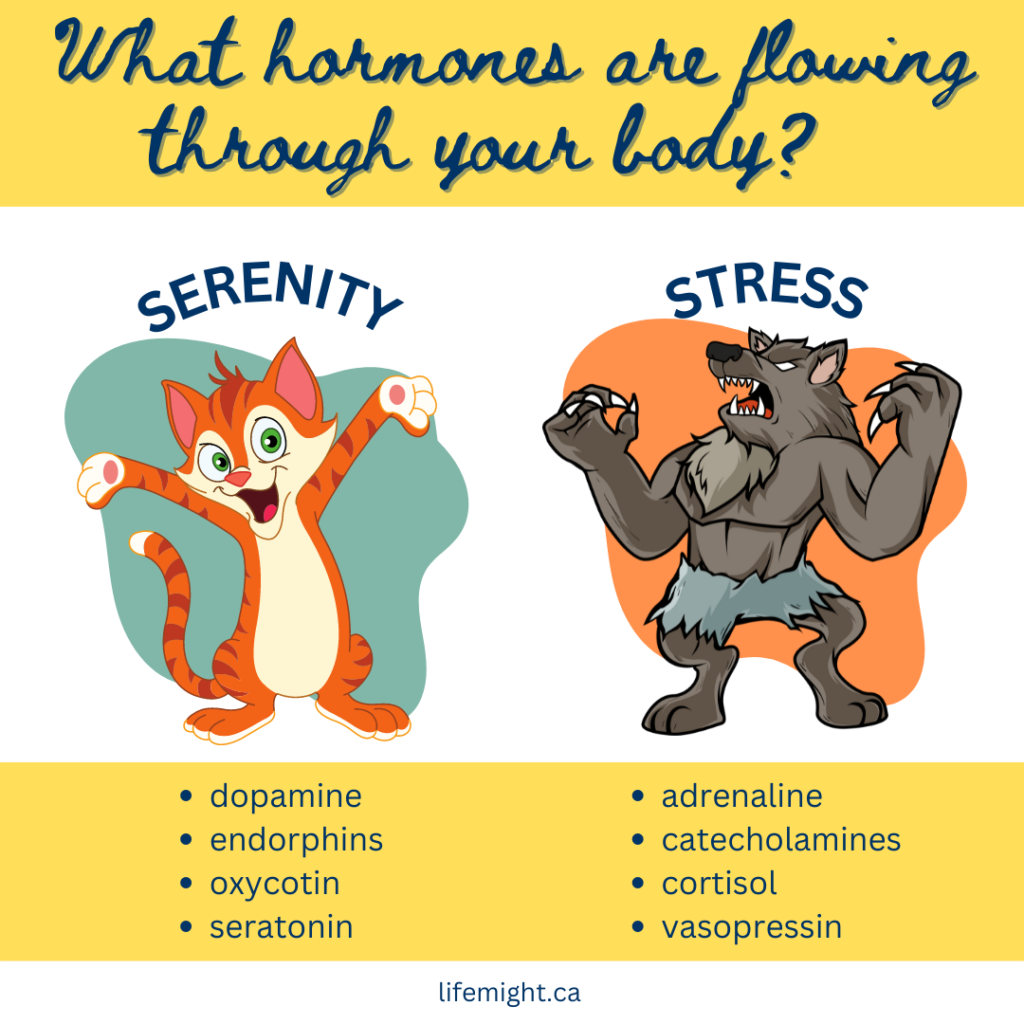What is mental health?
Mental health refers to the well-being of our cognitive, emotional, and social aspects of character that influence how we think, feel, and act as a person. This includes our ability to handle varying levels of stress, interact with others, make good decisions, and enjoy the countless blessings of life. The universal symbol is a green ribbon.
There are three thresholds of stress and it’s good to note that positive stress can be a wonderful motivator for change if acknowledged as such when procrastination has set in.
- Positive: mild, short-term, worry
- Tolerable: serious, short-term, anxiety
- Toxic: serious, long-term, panic
This year the theme for the Canadian Mental Health Association is “A call to be kind, compassion connects us all.”

On that note we can choose to show our compassionate side when we witness our fellow human beings under duress in one form or another.
The same goes for our own hardships where there is a need to show greater compassion for self.
A disturbance in the life force
When you consider the statistics that 1 in 5 people in the world suffer from some form of a mental health issue at any given time, you can appreciate the need for kindness all around you.
It is a disturbance in the flow of life force directly within the body’s energy channels that may be inherited or caused by various fear factors brought on by stress. Brain damage can also occur as the result of an industrial accident or car crash that makes for a long road back to recovery, especially if motor skills are affected.
Forms of mental health disorders:
- Anxiety
- Depression
- Bipolar
- Post Traumatic Stress Disorder (PTSD)
- Eating disorders – anorexia, bulimia
- Schizophrenia
- Neurodevelopmental disorders
Signs of mental health issues:
- emotional pain
- anti-social behaviour
- unexplained physical ailments
How meditation can help
Meditation resets brain activity along with the nervous system to reduce anxiety and allow for more cognitive thought processes in problem-solving. As well, it helps one to release painful emotions to enable healing from loss or dramatic change in personal situations.
It allows the mind its space to be more rational in thinking in the face of hardships and heartbreaks as it retrains the nervous system to respond rather than react to crises. It facilitates the balance between detachment to a stressor by becoming an observer, thus opening the mind to an intelligent healthy solution to a problem.
Meditation as a lifestyle develops resilience in daily life by strengthening the mind to focus on those thoughts that release more dopamine and endorphins for greater peace, clarity and sense of well-being.


